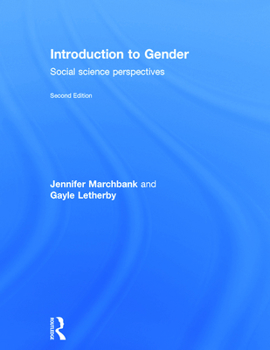Introduction to Gender: Social Science Perspectives
Thoroughly updated in this second edition, Introduction to Gender offers an interdisciplinary approach to the main themes and debates in gender studies. This comprehensive and contemporary text explores the idea of gender from the perspectives of history, sociology, social policy, anthropology, psychology, politics, pedagogy and geography and considers issues such as health and illness, work, family, crime and violence, and culture and media. Throughout the text, studies on masculinity are highlighted alongside essential feminist work, producing an integrated investigation of the field.
Key features:
A thematic structure provides a clear exploration of each debate without losing sight of the interconnections between disciplines.
World in focus boxes and international case studies offer a broad global perspective on gender studies.
In-text features and student exercises, including Controversy, A critical look and Stop and think boxes, allow the reader to engage in the debates and revise the material covered.
Hotlinks throughout the text make connections between chapters, allowing the reader to follow the path of particular issues and debates between topics and disciplines.
New to the second edition:
A new chapter explores gender through the discipline of philosophy.
A new section on international relations brings this relevant topic into focus.
Current discussion on the language of gender across Europe is brought in to Chapter 1.
A focus on Europe and Scandinavia as well as the UK gives the text a broader scope.
Examples are updated throughout to ensure the text is cutting-edge and relevant.
Introduction to Gender, second edition is highly relevant to today's students across the social sciences and is an essential introduction for students of sociology, women's studies and men's studies.





